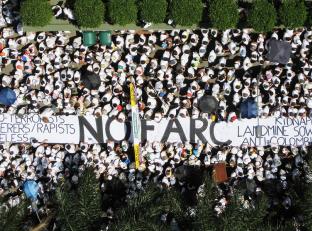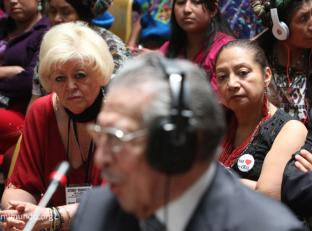Iduvina Hernandez, a journalist and human rights activist, was personally involved in the struggle for justice in Guatemala during the 36-year armed conflict that took the lives of up to quarter of a million people.
Her involvement began during her days as a student activist, when 16 of her fellow students were killed.
In 1984, she had to go into exile in Mexico after the death of a colleague. She remained there for five years and could have stayed on and started a new life. But her heart was bound to her native country and so she returned home.
Even today Hernandez says her life is constantly in danger and that she and her colleagues continually receive death threats. But she would rather die fighting for her country than silently watch corruption and impunity run rampant.
Although she sees some progress in Guatemala, Hernandez acknowledges that it is still a dangerous country where corruption is deeply entrenched in politics and society.
Hernandez has studied, and tried to influence, the reform of the intelligence services in Guatemala. The security forces in Guatemala were responsible for many human rights abuses during the civil war.
She has also studied professionalism in journalism in the Central American Journalism Program at Florida International University. She says that in order to understand current events in Guatemala, it is crucial to understand the past.
Hernandez is currently the director of the Association for the study and promotion of security in Democracy (SEDEM), an NGO that works to improve security, reduce impunity and improve the democratic process in Guatemala.
You can read Amnesty International’s report on SEDEM here. For more information on the Human Rights situation in Guatemala, you can follow this link.


